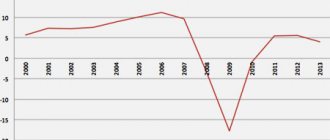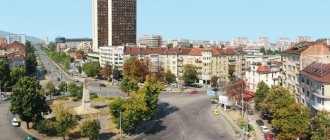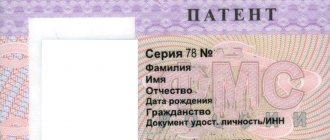Life in modern Bulgaria, its pros and cons
The modern Republic of Bulgaria has membership in the European Union, NATO and many influential international organizations. Bulgaria has declared its commitment to European democratic values, and since its accession to the European Union it has been trying to integrate as much as possible into this interstate formation.
In 2021, the last population census of the republic was carried out, according to which just under 7 million people live in Bulgaria (to be precise, 6,924,733 people). According to the International Monetary Fund, each resident in 2021 accounted for 24,247 USD of GDP. Despite the long occupation of Bulgaria by the Ottoman Empire, about 80% of Bulgarians are Orthodox.
The latest population census showed that about 10 thousand ethnic Russians with Bulgarian citizenship live on Bulgarian territory. There are also about 12 thousand Russian citizens in the country. Almost 2 thousand citizens of the republic are ethnic Ukrainians, and more than 3 thousand immigrants have Ukrainian citizenship. There are many Russian speakers in Bulgaria, because people from other post-Soviet republics are also trying to come to this country. The membership of the Republic of Bulgaria in the European Union largely determines the high immigration traffic from the CIS republics. A significant advantage when moving to Bulgaria is the relative ease of the immigration process and the loyal attitude of the Bulgarian immigration authorities towards Russians, Ukrainians or Belarusians. In addition, the most pragmatic immigrants in most cases use Bulgaria as a springboard to jump into more economically developed countries in Western Europe.
The largest cities in Bulgaria are its capital Sofia and Plovdiv. This is where most of the Russian-speaking population lives. There are also many immigrants from the CIS countries in cities and towns that are located on the Black Sea coast. The largest region of concentration of the Russian-speaking population on the Black Sea coast is Varna, where sometimes Russian speech can be heard as often as Bulgarian. By the way, the Black Sea coast of Bulgaria is a favorite holiday destination for Russian and Ukrainian tourists, which is greatly facilitated by the relative cheapness of tourist tours to this country.
Immigration to Bulgaria is very popular among Russian and Ukrainian military pensioners who want, while on their well-deserved rest, to enjoy all the benefits of living in this country: the warm sea, environmentally friendly products and relatively cheap real estate. In coastal cities, it is quite possible to find real estate in which the cost per square meter will not exceed 300 euros.
According to the Bulgarian government, in 2021 the average salary in the country was 550 euros . The minimum salary was set by Bulgarian legislators at 650 leva (about 332 euros). If we talk about the minimum hourly wage rate, it will be 3.92 leva. Over the last five years, workers in Bulgaria began to pay 46% more. Although the average wage in the Republic of Bulgaria is considered quite normal for the CIS countries, it is fair to say that the Bulgarian wage level is the lowest in the EU countries. The gap is offset by relatively low food and real estate prices. Frankly speaking, few labor migrants from post-Soviet countries go to Bulgaria. But for those who have sufficient funds, life in Bulgaria will be very comfortable .
Immigrants are entitled to certain social benefits. In particular, they have the opportunity to give their children free secondary education in Bulgaria; representatives of the youngest generation can attend preschool institutions for free. Students in most cases can study for free at higher education institutions in the country. Immigrants also have the right to apply for social grants and subsidies from the Bulgarian state.
Many Russian and Ukrainian immigrants live on the Black Sea coast of Bulgaria (circled)
What will be an advantage and what will be a disadvantage when moving to Bulgaria?
Each immigrant will have their own advantages and disadvantages of moving to the Republic of Bulgaria. We will note only the main ones. So, the clear advantages of immigration to Bulgaria will be:
- residence in a state that is a member of the European Union;
- simplified registration of a Schengen visa for residents of Bulgaria;
- the relative cheapness of life in the country;
- ecological cleanliness of Bulgaria;
- simplicity and accessibility of the immigration process, loyal attitude of the Bulgarian authorities towards Russians and Ukrainians;
- the immigrant's right to continue the immigration process, which may ultimately result in the receipt of a Bulgarian passport;
- the immigrant has the opportunity to effectively interact with European financial institutions;
- the possibility of legal employment is open to holders of immigration status;
- an immigrant has the right to receive state social support;
- Russians or Ukrainians who move to Bulgaria will be able to easily receive higher education in this country. But Bulgarian diplomas are already European documents and therefore will not require further nostrification;
- Bulgaria has a low crime rate, so living in it is quite safe;
- Bulgarian language is similar to Russian and Ukrainian;
- The mentality of the Bulgarians, their traditions and way of life are similar to the traditions of the Russian or Ukrainian people, so the immigrant will not have a kind of mental barrier during the initial period of living in Bulgaria.
Now let’s turn our attention to the disadvantages of moving to the former “sixteenth republic of the Soviet Union,” as Soviet citizens once dubbed Bulgaria. These will be:
- absence of Bulgaria from the list of signatories of the Schengen Agreement. This obliges immigrants and citizens of Bulgaria to apply for Schengen visas, although this process goes through quite quickly and without any problems;
- Bulgaria has a very low level of wages, so it is hardly worth considering it as an ideal country for labor migration;
- the republic has a low standard of living;
- Bulgaria is a transit territory for forced migrants from the countries of the Middle East, which creates social tension in some regions of the country due to the negative attitude of Bulgarians towards such “uninvited guests”;
- remnants of the socialist past still have a rather strong influence on the lives of Bulgarians and immigrants;
- unemployment in 2021 is recorded at almost 6.7%. But these are only official figures; in fact, the unemployment rate is much higher. This is especially true for the younger generation of Bulgarians. Therefore, finding a good job in Bulgaria for an immigrant can sometimes be quite difficult.
But the positive aspects still prevail over the negative, since Russians and Ukrainians who decide to move and legalize in Bulgaria consider this country, first of all, as a state for comfortable and relatively inexpensive living.
An immigrant who moves to Bulgaria is obliged to comply with its laws and respect the constitutional foundations of the state, and also strive for the deepest possible integration into Bulgarian society.
The immigrant’s right will be the opportunity to live long-term and legally on Bulgarian territory, turn to the state for social support, and also move on to further stages of naturalization in the country.
Video: let's get to know Bulgaria better
What should you consider when moving at an older age?
Bulgaria is famous for its ecology, mild climate and excellent living conditions, which in themselves heal and improve health. However, it is worth considering the need to obtain medical insurance in Bulgaria in order to obtain a residence permit and adequate care in case of deterioration of health, which is not uncommon for people of retirement age.
Another consideration could be costs. If the budget is modest, then it is possible to consider renting a property rather than buying it - the cost of rent does not exceed the rent of an apartment in the near Moscow region.
One of the conditions for a comfortable move will be knowledge of the language. Without it, you are faced with a set of funny situations when the similarity of the language plays with new colors.
What are the types of residence permits in Bulgaria?
The fundamental division of immigration statuses in Bulgaria is almost the same as in other EU countries. A residence permit can be:
- temporary type (residence permit);
- permanent type (permanent residence).
The permanent type of residence permit is divided into two categories: long-term residence permit (LRP) and direct permanent residence permit. Having a long-term residence permit is a feature of Bulgarian immigration legislation.
The procedure for obtaining each of these immigration statuses is slightly different. The easiest way is to obtain and subsequently renew a temporary residence permit . Other types of immigration status are less accessible, but not unattainable for those immigrants who meet all the requirements.
Often, immigrants from the CIS countries have a question about how difficult it is to obtain a Bulgarian residence permit, for example, for a Russian or Ukrainian. In this regard, Bulgarian immigration laws do not provide any special conditions for immigrants from the CIS countries, so the immigration process for them is carried out on the general basis provided for citizens of third countries outside the European Union.
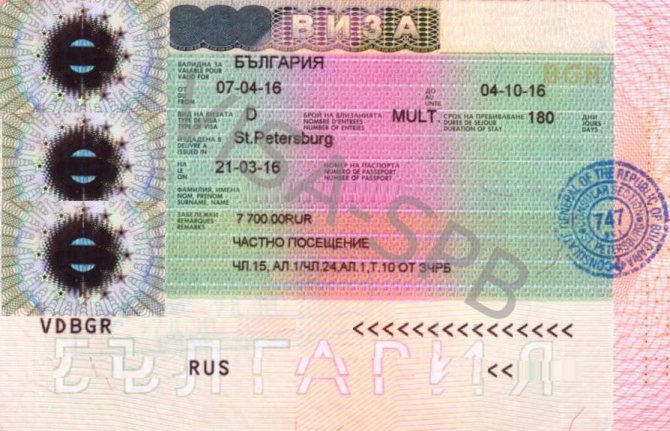
Future immigrants can come to Bulgaria with a visa
Where is a residence permit issued in Bulgaria?
Issues of granting immigration status and citizenship are within the competence of the Bulgarian Ministry of Justice. The application review period will be at least a month. The maximum period for making a decision, according to Bulgarian immigration law, will be two months.
The decades-long observations could mean something to those planning to leave their homes and make a change for life in the land of ever-red tomatoes. Buy real estate in Varna, for example. Open your own business in Varna, on the Black Sea. Treat your sores in Bulgaria. There are many different reasons and reasons for coming and moving. Obtaining a residence permit in Bulgaria is simple and inexpensive. Finding a job is more difficult, but also possible. It’s quite possible to earn 50 leva a day even without a specialty. At first there is little good. As soon as you adapt to the country and the rules, life will become a pleasure. Verified. There are many examples of employment in Bulgaria, both positive and negative, of which, unfortunately, there are more. It depends on the individual himself.
Methods for obtaining a residence permit
A residence permit in Bulgaria is obtained in several ways:
- a foreigner is hired by a Bulgarian company to work in the country;
- carrying out business activities that provide jobs for more than 10 Bulgarian citizens;
- the visitor is a foreign specialist;
- marriage with a Bulgarian citizen;
- representation of a foreign company that is registered with the Bulgarian Chamber of Commerce and Industry;
- admission to long-term treatment;
- the person is a correspondent for foreign media with accreditation;
- the person is a family member of a Bulgarian citizen;
- acquisition of real estate worth more than 300,000 euros (residential or industrial);
- obtaining special protection status;
- investments worth more than 125,000 euros in economically disadvantaged areas of Bulgaria.
The procedure for obtaining a residence permit in Bulgaria for Russians and Ukrainians
You should contact the Bulgarian immigration authority with an application and the package of documents required by law. It should include:
- a valid foreign passport of the applicant, the remaining validity of which is at least one year at the time of submitting the application for a temporary residence permit to the immigrant. You will also need to make and provide to the Bulgarian immigration authorities photocopies of your current passport and all expired passports held by the applicant;
- the document on the basis of which the immigrant requests a residence permit;
- three color passport size photographs. It is necessary to take photographs no later than six months before submitting documents for a residence permit, otherwise the photographs may be considered invalid;
- a certificate from a Bulgarian state or accredited private clinic stating that the applicant for a residence permit is not a carrier of one of the socially dangerous diseases;
- certificate of good conduct;
- an insurance policy that has a minimum coverage of 30 thousand euros;
- proof of financial solvency in the form of bank statements or other financial documents that can certify to the authorities that the applicant has a sufficient and legal source of income;
- confirmation of place of residence in Bulgaria. This may be a certificate of ownership of real estate or a long-term lease agreement;
- certificate of no criminal record in the Russian Federation or Ukraine;
- receipts and checks that will serve as confirmation that the applicant has paid all required administrative fees.
Documentation, of course, must be submitted in Bulgarian. The applicant is advised to contact a translation agency in his home country, otherwise translations made directly in Bulgaria will cost him several times more. All translations must be certified with an apostille.

Translations of documents are certified by an apostille
If any of the documents was issued in any of the countries of the European Union, then no action should be taken with it; it will be accepted automatically by the Bulgarian authorities.
Minors must have birth certificates. In addition, in the case when they receive their first immigration status with only one of the parents, a written consent notarized and translated into Bulgarian will be required from the second. If it is impossible to obtain it, then the present parent will need to justify this with relevant supporting documents, for example, a death certificate of the second parent or a court recognition of him as incompetent, a court decision declaring him missing, and so on.
What does a residence permit give to Russians?
A residence permit is nothing more than a document giving the right to stay in the country. A temporary right, which cannot be longer than a year. Externally, this document is a plastic card with the personal data of its owner - analogous to a passport.
You can issue this card in 2 weeks, but on average the period is from 3 to 5 weeks. In terms of rights, foreigners with a residence permit are not deprived of anything in comparison with citizens of the republic; the only exceptions arise from the rights of Bulgarian citizenship. A residence permit for a Russian immigrant in Bulgaria gives a whole range of rights, namely:
- have no problem entering and leaving the country without a visa;
- receive local education;
- conduct business activities;
- obtain medical insurance (without it, receiving medical care will be problematic);
- get a job without collecting additional documents, one of which is permission to work in the country;
- receive social support and security;
- receive pension savings, including pensions, as concerns older migrants.
True, those who like to travel should take into account that a residence permit in Bulgaria does not eliminate the need for a visa when entering points of the European Union.
The only exceptions here are close neighbors:
- Romania;
- Croatia;
- Cyprus.
Specifics of obtaining a residence permit
There are specific features for each category of applicant. Much depends on the basis for requesting immigration status: list of documents, deadlines, cost and other conditions. Immigrants should understand in detail which immigration program is most suitable for them. This will help streamline the entire immigration process.
Russians are very different in temperament from Bulgarians; they all try to rush somewhere, always running somewhere. But this is only the first time. Then they become as sedate as the Bulgarians, their gait even changes. Many of my relatives and friends moved to Bulgaria and have never regretted their decision. There is a legend in Bulgaria: “When God was distributing land to different countries, Bulgaria was late and he gave her a piece of heaven.” And this is true. More than 7,000 healing mineral springs, a lot of historical excavations, preserved ancient relics, fortresses, temples, monasteries. In a word - pristine beauty!
Immigration of financially independent foreigners
Foreign citizens who have expressed a desire to move to Bulgaria and have sufficient financial resources to do so can obtain a residence permit without any problems. To do this, they will need to prove that they have an independent external source of income that is not dependent on political or market conditions. This could be income from renting out real estate in your home country or another country, dividends from shares or other securities, profits from an existing business, and so on. The minimum income level for the main applicant is set at 1200 euros per month. For financially dependent members of his family immigrating with him, 50% of this amount is enough, and for minors - 30%. For financially independent persons (FIP), immigration rules do not provide for the possibility of employment in Bulgaria for hire, engaging in business or any other activity that involves making a profit within the Bulgarian borders.
In terms of cost/quality of service ratio, this is the cheapest EU country. Renting an apartment with two bedrooms in the central areas of the resort of Varna will cost from 400 to 600 levs per month (1 euro = 1.96 levs, this rate has been constant for many years). In Sofia (the capital) or Plovdiv (the second largest city in Bulgaria) it may cost less.
Employment in Bulgaria
The labor market in the Republic of Bulgaria is quite specific. The fact is that part of the working-age population of that country, after its entry into the European Union, immediately left for more economically prosperous European countries. Accordingly, many vacancies became available, which began to be filled, as a rule, by labor migrants from the CIS countries. The most in demand in Bulgaria are specialists in the financial sector of the economy, including bank managers. There is also a high demand on the domestic Bulgarian labor market for specialists in the field of computer technology, information security, and telecommunications. Construction workers, public transport drivers, waiters, maids, and hotel administrators are also likely to find work in Bulgaria. The last three categories of specialists should look for work on the Black Sea coast of Bulgaria.
A foreign specialist must have a signed contract with one of the Bulgarian employers and an invitation to work issued by the latter. Russian labor migrants apply with these documents to the Bulgarian embassy in Moscow, and Ukrainian ones must visit the embassy of this country in Kyiv. You can also obtain a work visa at some specialized visa centers, having previously inquired about their consular jurisdiction and the possibility of issuing this category of entry permits.
The next step for a migrant worker will be to contact the immigration service in Bulgaria. During the three-month period upon arrival, a labor migrant in Bulgaria must apply for a residence permit. Migrant workers can receive this immigration status for a period of one year, after which it will need to be renewed annually. Highly qualified specialists who are Blue Card holders can immediately obtain a residence permit for a period of two years and subsequently renew it for a two-year period. It should be noted that during the first year of his work in Bulgaria, a migrant worker cannot change his place of work. He has this right from the second year of his stay in the country. The legislation of the European Union requires the employer who invited a foreign specialist to bear all the costs and concerns of obtaining immigration status for him. It is possible to extend a working-type residence permit if there are grounds for this in the form of an extended employment contract or a new contract with another Bulgarian employer.
Video: work in Bulgaria and how to find it
Residence permit for students
Obtaining higher education in Bulgaria is of interest to Russians and Ukrainians who connect their future careers with working abroad. A diploma from any Bulgarian higher education institution will no longer require nostrification, since it already fully complies with European standards. In addition, education in Bulgaria is considered to be of quite high quality. It is free in public universities.
As a rule, Russian or Ukrainian applicants personally come to Bulgaria and take entrance exams to the university. You can enroll in many specialties remotely by passing an online examination. If the required passing score is obtained, then yesterday’s applicant is included in the number of full-time students and is given an invitation to study. In addition, it is necessary to sign a corresponding contract with the university. With an invitation and a contract, the student applies for a student visa to the Bulgarian diplomatic mission in his country of residence. Then, within three months, he obtains a residence permit directly from Bulgaria. Only full-time students can obtain immigration status. For a student, a residence permit in Bulgaria is valid for only 12 months; then it will need to be extended by submitting a petition from the university administration confirming the applicant’s transfer to the next year of study.

You can study for free in public universities
Treatment in Bulgaria
Bulgaria has a traditionally high level of medical development. In addition, this country has many specialized resorts, located, as a rule, on the Black Sea coast, where patients, including from the CIS countries, come for more or less long-term treatment. If the course of treatment is expected to last longer than three months, you will need to apply for a residence permit. In this case, the immigration authority must provide an agreement with the medical institution and an officially certified diagnosis of the patient. A residence permit is issued for a maximum of one year, but if a contract with a medical institution, for example, is concluded for six months, then immigration status will be issued for the same period. If it is necessary to continue the course of treatment, the applicant must again contact the country's immigration service with a request to extend his residence permit. To do this, there must be an official attitude from the administration of the medical institution.
There are things that are sometimes very annoying. Especially in some former compatriots. For example, I have never seen such a number of agents and consultants in all service sectors as in Bulgaria (is this a place, or what?..). Really, what else can you do abroad? The very first thing that comes to mind is selling real estate. There is a lot of it here and it is “cheap”. Secondly, you can provide various kinds of assistance services for new arrivals, there are also a lot of them here and everyone constantly needs something.
Marriage in Bulgaria
When entering into an official marriage with a Bulgarian citizen, the foreign spouse has an unconditional basis for obtaining immigration status. Initially, he will be given a temporary residence permit, and after a year - a permanent one. You can apply for Bulgarian citizenship after three years of official marriage, provided you live during this period on Bulgarian territory. If the spouses live outside Bulgaria, the period before obtaining citizenship will extend for five years.
Marriage certificates issued in any country outside the European Union will need to be legalized in Bulgaria.

Marriage certificates issued in any country outside the European Union will need to be legalized in Bulgaria
Retire to Bulgaria
Most often, Russian and Ukrainian pensioners settle on the Black Sea coast. They are attracted by the comfortable Bulgarian climate, the absence of the usual fuss and cheap life. Pensioners can obtain a temporary residence permit without the opportunity to engage in any income-generating activity in Bulgaria. A minimum level of funds that a foreign pensioner must have is also established. It amounts to 700 euros, which must come every month from an external independent source. When immigrating a married couple, where both spouses are retired, 1,400 euros of income per month is required.
Pensioners need to confirm their status with the appropriate certificates, and also inform the Bulgarian authorities about the amount of the state pension paid in their home country by providing extracts from the pension fund.
Russian pensioners should be aware that it is possible for them to transfer a Russian pension to Bulgaria. To do this, they need to pay a visit to the National Institute of Social Security. There you must leave an application and then follow the instructions received from the employees of this institution. The entire pension transfer process can take up to six months.
Real estate
If a Russian or Ukrainian decides to acquire his own real estate in Bulgaria, then he needs to know that he will be able to obtain immigration status on this basis only if the cost of the property is at least 300 thousand euros. This figure must be recorded in the independent expert assessment report and the purchase and sale agreement. In this case, you can immediately apply for permanent residence. After five years, the owner of Bulgarian real estate, as well as members of his family, will be able to apply for Bulgarian citizenship.
Considering the relative cheapness of “square meters” in Bulgaria, for 300 thousand euros in this country you can buy quite luxurious apartments in which you can subsequently live or rent them out, which is not prohibited for immigrants by Bulgarian legislation.
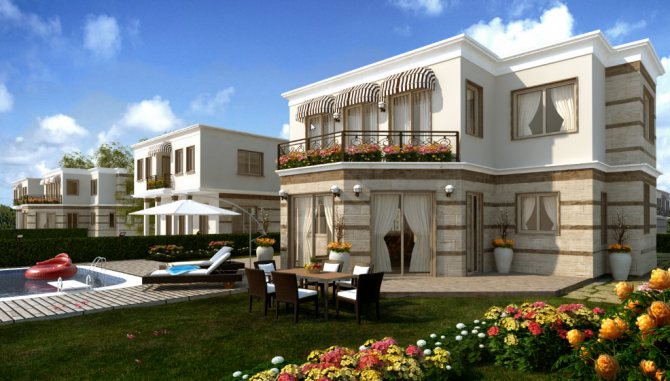
For 300 thousand euros in Bulgaria you can buy quite luxurious apartments
Russians and Ukrainians often consider obtaining immigration status in Bulgaria and subsequently obtaining citizenship of this country as a kind of “golden key” to enter the European Union. Despite the republic’s full membership in this interstate formation, life in Bulgaria is in many ways reminiscent of domestic realities. I had the opportunity to meet a married couple from Ukraine who moved to Bulgaria three years ago. Maxim and Olga (that’s the name of my friends) settled in Varna. The decision to immigrate to Bulgaria arose after a tourist trip to the “Golden Coast” of Bulgaria. Having learned about the opportunity to quickly become Bulgarian citizens by purchasing expensive real estate, the guys decided to take advantage of this chance. Maxim inherited an apartment from his aunt almost in the very center of Kharkov. Considering the far from rosy prospects for the development of the economic situation, Maxim and Olga began to consider options for moving to more prosperous European countries. We settled on Bulgaria because, firstly, in this country you can obtain citizenship by purchasing real estate, and secondly, a Bulgarian passport can be a second one, so you won’t have to give up your Ukrainian one. Thirdly, prices for Ukrainian real estate began to fall sharply and it was necessary to make a decision about the future fate of the luxury apartment inherited. It was sold for 410 thousand euros. The guys purchased a modern private house with a small plot of land in the suburbs of Varna. Yes, the sea was a 10-minute walk away. The declared price of the house was 350 thousand euros, but as a result of bargaining, the sellers still reduced the price by as much as 40 thousand euros. In a conversation with me, Maxim emphasized that a real estate company must take part in a real estate transaction in Bulgaria. Failure to do so may result in the real estate transaction being declared invalid. Therefore, you can lose a lot of money. The need for the participation of a real estate company is prescribed in Bulgarian legislation. Before contacting a real estate company, you should inquire whether it has the appropriate license. Participation in a transaction by an unlicensed company may also lead to its cancellation. By the way, almost half of the realtors on the Black Sea coast of Bulgaria are from Russia and Ukraine. It’s easy to work with them, but you have to, as they say, not let your guard down. Among compatriot realtors there are many swindlers whose victims were their naive fellow countrymen. Very quickly the guys received permanent residence in Bulgaria. The procedure for obtaining the status itself passed quickly and even somehow unnoticed. The remaining amount from the sale of an apartment in Kharkov was deposited in one of the Bulgarian banks at fairly high interest rates. Maxim, who worked as a system administrator in Kharkov, very quickly found a job in Varna. Only her payment in Varna was practically no different from payment in Kharkov...
Residence permit for family reunification
Moving to Bulgaria of close relatives from Russia or Ukraine can only be carried out on the basis of an invitation issued by Bulgarian relatives. The invitation must contain all the personal data of foreign relatives, confirmation of closely related ties with them (which will require appropriate documents), as well as guarantees of material and integration support from the inviting party. Those who have moved within a three-month period receive a residence permit, then the naturalization process for them takes place in a standard manner.
Residence permit for property owners
A residence permit in Bulgaria is the opportunity to live in the country during the validity period of the residence permit. The permit is issued for a period of 6 or 12 months.
A residence permit for the purchase of real estate is granted only if a person has purchased property worth at least 600 thousand leva. , residential premises must be purchased
The peculiarity of Bulgarian apartment buildings is that not all apartments have housing status. They are suitable for living, equipped with a bathroom, they have a central water supply and sewerage. Located in a large city. However, according to the documents they have a different status:
- Atelier is a room for creativity and work. Most apartments are studios, but there are also luxury apartments with sea views;
- Warehouse – storage room;
- Utility rooms intended for laundry, beauty salons;
- Attic spaces. Located on the top floor. The ceiling height is slightly lower than normal; they are not considered residential.
Recently, a compromise has been found - the studio can be considered suitable for housing, the owners of the studio more expensive than 300 thousand euros become holders of a residence permit. Owners of options with a different status will be disappointed - in order to obtain a residence permit, they will have to agree on a change in the purpose of the apartment.
If the price of an apartment is less than 300 thousand euros, the purchase is not considered a basis for obtaining a residence permit. The applicant must justify his long-term stay in Bulgaria with other reasons (wealthy pensioner, family member of a Bulgarian citizen, foreign trade mission) . In these cases, the person must also prove that he owns or rents residential property in the country. The price of housing can be anything.
Process Features
When applying for a temporary residence permit, there is no need to pass an exam on proficiency in the Bulgarian language.
The state fee for obtaining a temporary residence permit will be 180 leva for all categories of applicants. To this amount you must add payment for translation and certification services. Experienced immigrants advise translating all documentation back home and having it certified in the prescribed manner. It will be much cheaper than directly in Bulgaria itself.
The duration of obtaining a residence permit directly depends on many factors: the workload of immigration officers, the correct selection and preparation of documents by the applicant, the presence of public holidays considered days off, and so on. The law establishes a maximum period for consideration of an application for a residence permit of one month. In practice, as a rule, everything is resolved within two weeks.
A residence permit may be deprived, but only because it was obtained on a fictitious basis or due to the commission of a crime in Bulgaria.
Validity
The validity period of a temporary residence permit for the vast majority of applicants is one year. The exception will be EU Blue Card holders. After five years, subject to periodic renewal of a temporary residence permit (can be extended only if there is a reason, for example, an extended employment contract), a long-term residence permit is available - DVZh. This status can only be issued to certain categories of foreigners, for example, labor migrants and students. The temporary residence permit is valid for five years, after which it can be transformed into permanent residence permit. Those who can obtain permanent resident status immediately after the expiration of the five-year period with a temporary residence permit can live there for five years before obtaining citizenship.
